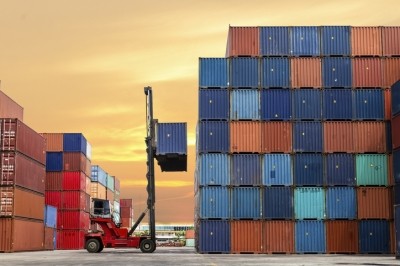Argentina turns to imported soybeans for domestic use as exports expand

The US Department of Agriculture (USDA) released details of expected soybean production in 2018/19 and the potential for increased imports to Argentina in a recently released report.
Overall, soybean production in 2018/19 is predicted to fall slightly to 56m tons stemming from a drop in the total area planted, the agricultural attaché said.
Weather has caused some planting delays for the upcoming crop compared to progress in earlier years, he added.
“As of late November, about 30% of Argentine soybean area had been planted,” he said. “Sowing is advancing in the production regions of south Cordoba, north La Pampa, and west Buenos Aires provinces with local estimates indicating 5.3m hectares planted, so far.”
However, imports for 2017/18 were increased from the previous year stemming from a period of drought in the country, he said. The forecast for imports in 2018/19 also has seen an “upward revision.”
Crop production highlights
Planting pace for the upcoming soybean crop is expected to accelerate through December until it ends in January, the attaché said.
“Producers expect a return to normal or average conditions which will support higher yields,” he said. However, producers of the feed crop are expected to see challenges from growing input costs, which could lead to reduced yield, he added.
“Based on an estimated harvested area of 18.5m hectares, Post estimates an average yield recovery to 3.03 tons per hectare, resulting in production of 56 million tons,” the attaché said.
China, the US and trade details
Soybean producers also have been watching the state of trade relations between the US and China and the influence of that relationship on global soybean prices and trade, said the attaché.
“Producers and local soybean industry hope that the situation may deliver them higher premiums,” he said. “Based on the current imposition of Chinese tariffs on US soybeans, Argentine producers, which are currently benefiting from a divergence in US and Argentina soybean prices, expect to receive an additional USD $10bn in soybean export returns, given these ongoing conditions.”
Argentina also has been increasing its own imports of soybeans, as domestic supplies were reduced last year by dry weather conditions, he said.
By September, Argentina saw its imports increase 135% from the previous year to more than 3.5m tons of soybeans, he said. In total, the country may have imported up to 5.5m tons during the 2017/18 marketing year.
“US soybean exports to Argentina reached nearly 450,000 tons during this same period, with expectations of greater shipments to come in the next few months,” the attaché said. “According to USDA export sales data, US soybean exports to Argentina should reach about 1.5m tons within the next few months.”
From June through September of this year imported of US soybeans increased from about 55,000 tons to almost 250,000 tons a month, according to USDA information.
Total imports for both 2017/18 and 2018/19 marketing years have been increased, the attaché said. Import estimates have been raised to 5.3m tons and 4.5m tons, respectively.
Exports also are continuing to expand, he said. “Initially this shift in trade and production flows was the result of Argentina’s drought in early 2018, which forced processors to import higher volumes to maintain crush volumes,” he added.
There has been an increase in the export of whole soybeans, which has been reducing interest in domestic processing, he said.
“As a result, Argentina is importing soybeans for processing from Paraguay, the United States, Brazil, and Uruguay an effort to reach historic crush levels,” he added.
Expected crush amounts for 2017/18 were reduced down to 37.6m based on increased supply competition from exports, the attaché said.









